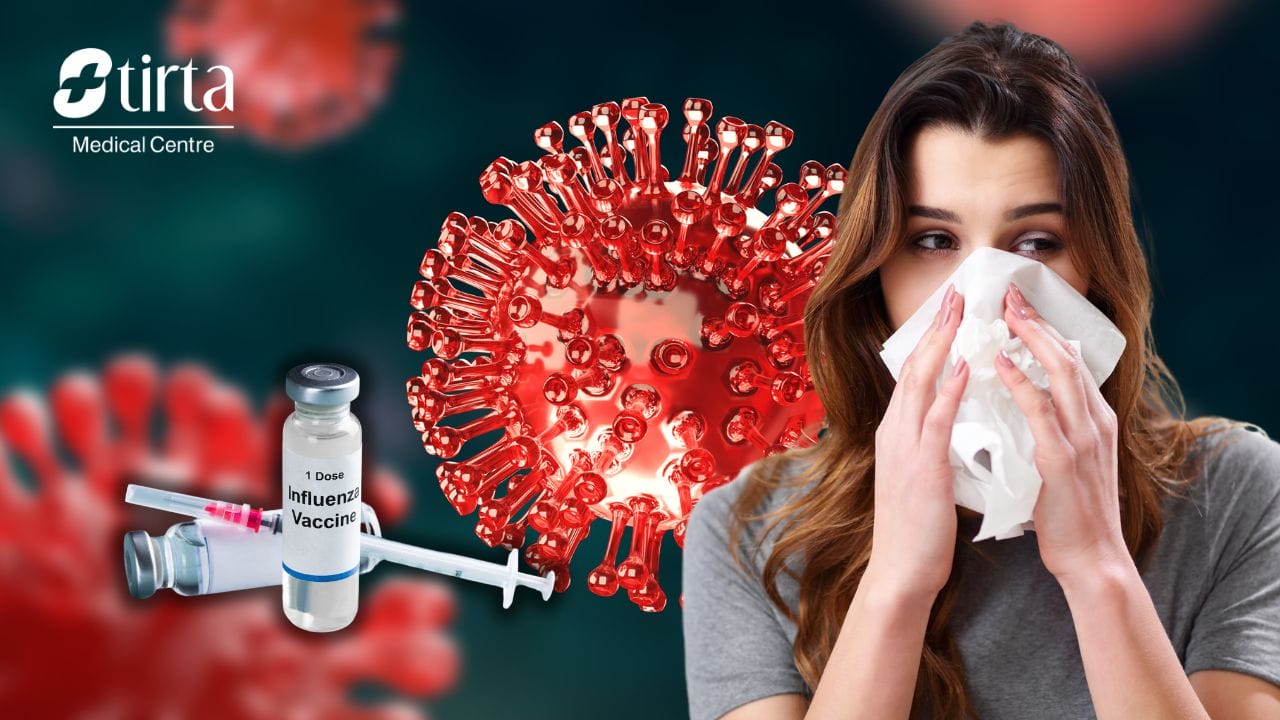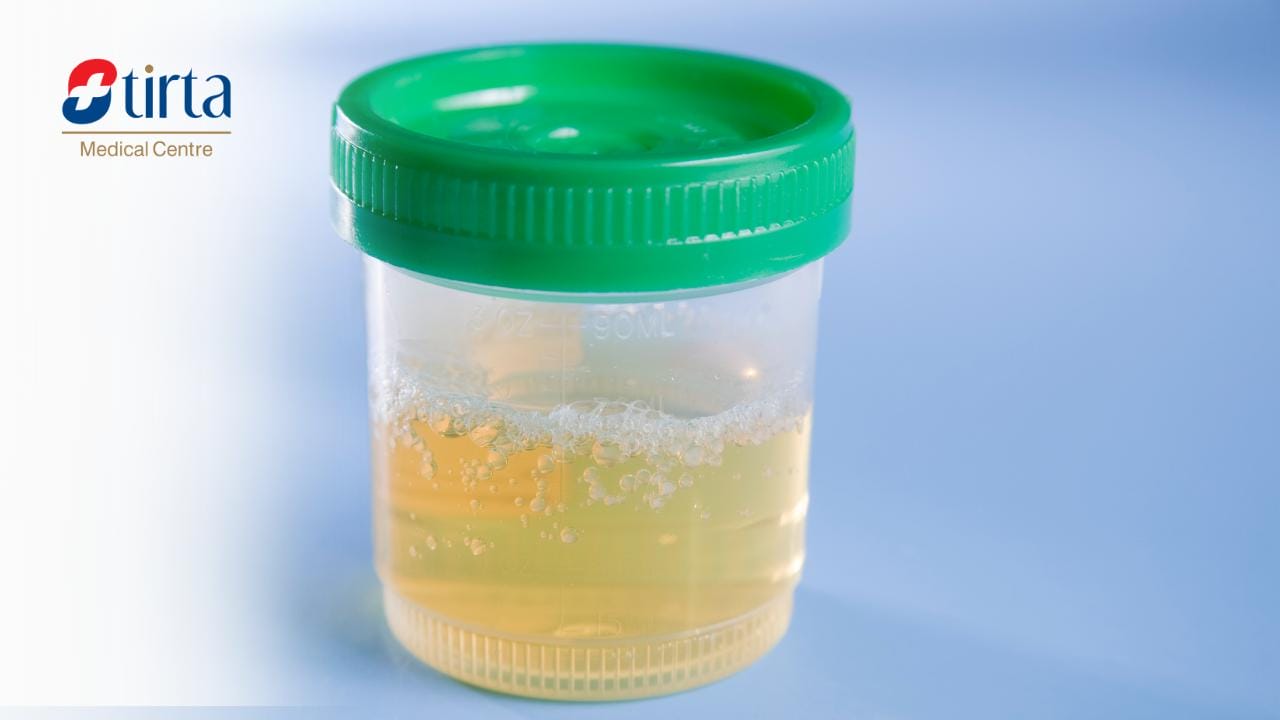Influenza, or the flu, is a respiratory infection caused by the influenza virus. Although often considered a mild illness, the flu can lead to serious complications, especially in high-risk groups. Influenza vaccination is one of the most effective preventive measures to protect yourself from this disease.
What is the Influenza Vaccine?
The influenza vaccine is designed to provide protection against the influenza virus. The vaccine has weakened or inactivated parts of the flu virus. It can’t make you sick, but it can help your immune system make antibodies. These antibodies help the body recognize and fight the influenza virus if exposed in the future. The immune response takes about 2 weeks to develop after vaccination.
The influenza vaccine needs to be administered annually because the influenza virus mutates rapidly. The vaccine is updated every year to match the virus strains recommended by the World Health Organization (WHO).
Benefits of the Influenza Vaccine
The influenza vaccine offers several important benefits for individual and public health. Here’s a more detailed explanation of the benefits:
1. Prevents Flu Infection
The influenza vaccine has been proven to effectively reduce the risk of contracting the flu by 40-60% during flu season. This vaccine helps prevent the flu and the uncomfortable symptoms that come with it, such as fever, muscle aches, headaches, and coughing.
2. Reduces Severity of Flu Symptoms
If a vaccinated person still contracts the flu, the symptoms tend to be milder compared to those who are unvaccinated. This can help speed up recovery and reduce the impact of the flu on daily activities.
3. Lowers Risk of Serious Complications
Vaccination helps safeguard vulnerable populations, including the elderly, children, pregnant women, and those with chronic illnesses, by significantly reducing the likelihood of severe complications such as pneumonia. According to WHO, the global incidence of flu-related complications reaches 5 million cases per year, with up to 650,000 deaths worldwide.
4. Reduces Hospitalization Risk
The influenza vaccine has been shown to prevent tens of thousands of flu-related hospitalizations each year. A 2018 study found that among adults hospitalized for flu, vaccinated patients were 59% less likely to be admitted to the ICU compared to those who were unvaccinated.
5. Protects Pregnant Women and Their Babies
Administering the influenza vaccine to pregnant women not only protects the mother but also provides protection to the baby for up to 6 months after birth. This is crucial as infants under 6 months are not yet eligible to receive the influenza vaccine directly.
6. Prevents Flu Transmission
By getting vaccinated, individuals help prevent the spread of the influenza virus to others around them, including family members, friends, and coworkers. This contributes to efforts to control the spread of flu in the community.
7. Reduces Healthcare System Burden
By preventing flu cases and their complications, influenza vaccination helps reduce the burden on healthcare services, especially during flu season, which typically leads to a surge in patient visits.
8. Long-Term Protection
Although the effectiveness of the influenza vaccine can vary from year to year, annual routine vaccination provides cumulative benefits by enhancing immunity against various influenza virus strains over time.
With these various benefits, influenza vaccination is highly recommended by health authorities worldwide, including WHO, to protect the health of individuals and the community from the threat of flu and its complications.
Types of Influenza Vaccines
Influenza vaccines are available in several different types. Here is a more detailed explanation of the types of influenza vaccines:
1. Inactivated Influenza Vaccine (IIV)
This vaccine contains influenza virus that has been inactivated, so it cannot cause infection. IIV is available in two forms:
- Trivalent Vaccine: Protects against 3 strains of the flu virus (2 strains of flu A and 1 strain of flu B).
- Quadrivalent vaccine: Protects against 4 strains of the influenza virus, including 2 strains of influenza A virus and 2 strains of influenza B virus. IIV can be administered via intramuscular injection and is generally safe for individuals aged 6 months and older.
2. Live Attenuated Influenza Vaccine (LAIV)
LAIV contains live influenza virus that has been weakened. This vaccine is administered as a nasal spray and is only available in a quadrivalent form. LAIV is recommended for healthy individuals aged 2-49 years.
3. Recombinant Influenza Vaccine (RIV)
RIV is produced without the use of chicken eggs, making it safe for those with egg allergies. This vaccine contains hemagglutinin (HA) protein representing influenza A and B viruses. RIV is available in quadrivalent form and is indicated for individuals aged 18 years and older.
4. Cell-Based Influenza Vaccine (ccIIV)
This vaccine is produced by growing the virus in cell cultures rather than in eggs. The quadrivalent ccIIV vaccine can be administered to individuals aged 6 months and older.
Some specific variations of these vaccines include:
- High-Dose Vaccine: Specifically designed for people aged 65 and older, containing four times the antigen compared to standard vaccines.
- Adjuvanted Vaccine: Contains additional substances to enhance the immune response, particularly recommended for those aged 65 and older.
- Intradermal Vaccine: Injected into the skin layer rather than the muscle, using a shorter needle.
Choosing the right flu vaccine depends on factors like age, health history, and the latest health recommendations.
In Indonesia, there are two types of influenza vaccines: the trivalent vaccine, which protects against three flu viruses, and the quadrivalent vaccine, which protects against four strains of the virus.
The flu vaccine is updated every year to match the predicted virus strains, following WHO recommendations. Therefore, influenza vaccination is recommended to be done routinely every year to ensure optimal protection against circulating influenza viruses.
Side Effects of the Influenza Vaccine
The influenza vaccine is generally safe and well-tolerated. However, like any medication or vaccine, the influenza vaccine can cause side effects in a few recipients. The potential side effects of the influenza vaccine include:
1. Local Reactions at the Injection Site
Common symptoms include pain, redness, and swelling at the injection site. These reactions are usually mild and will subside within a few days.
2. Mild Flu-like Symptoms
Some people may experience mild fever, muscle aches, or a general feeling of discomfort after vaccination. These symptoms typically last 1-2 days.
3. Headache
Mild headaches may occur as a side effect of the influenza vaccine.
4. Nausea
A small number of flu vaccine recipients may experience mild nausea.
5. Allergic Reactions
In very rare cases, the influenza vaccine can cause a severe allergic reaction (anaphylaxis). Therefore, vaccine recipients are asked to wait 15-30 minutes at the healthcare facility after vaccination for monitoring.
It is important to note that serious side effects from the influenza vaccine are extremely rare. The benefits of vaccination in preventing flu and its complications far outweigh the risks of side effects.
Nearest & Best Influenza Vaccine at Tirta Medical Centre
Tirta Medical Centre (TMC) provides safe and reliable influenza vaccination services. The influenza vaccine used is the latest quadrivalent vaccine, following WHO recommendations to provide optimal protection.
Before vaccination, a doctor will conduct a screening to ensure there are no contraindications. The vaccination is administered by trained healthcare professionals using sterile procedures. Patients will be monitored for 15-30 minutes post-vaccination to anticipate any possible allergic reactions.
Influenza vaccination can be done at all Tirta Medical Centre branches across Indonesia or through homecare services.
Tirta Medical Centre also offers consultation services related to influenza vaccination. Patients can discuss the benefits, risks, and appropriate vaccination schedules according to their individual conditions.
Getting vaccinated against influenza at Tirta Medical Centre helps prevent flu and protects you and others from serious complications.
References:
- Rahma, S. S., Mutyara, K., Murad, C. (2016). Diakses pada 2024. Gambaran Pengetahuan Masyarakat mengenai Influenza pada Manusia di Kabupaten Indramayu dan Majalengka sebagai Wilayah Kejadian Luar Biasa H5N1 pada Unggas di Jawa Barat Tahun 2014: https://jurnal.unpad.ac.id/jsk_ikm/article/download/10357/4728
- Kemenkes. Diakses pada 2024. Manfaat Vaksin Influenza bagi Anak: https://yankes.kemkes.go.id/view_artikel/1883/manfaat-vaksin-influenza-bagi-anak
- CDC. Diakses pada 2024. Vaccine Effectiveness: How Well Do Flu Vaccines Work?: https://www.cdc.gov/flu/vaccines-work/vaccineeffect.htm
- Elsevier. Diakses pada 2024. Influenza Virus Vaccine: https://elsevier.health/en-US/preview/influenza-virus-vaccine
- ScienceDirect. Diakses pada 2024. Influenza vaccine effectiveness in preventing influenza-associated intensive care admissions and attenuating severe disease among adults in New Zealand 2012–2015: https://www.sciencedirect.com/science/article/abs/pii/S0264410X18309976?via%3Dihub
- Habit Health. Diakses pada 2024. Flu Vaccination FAQ: https://www.habit.health/workplace/workplace-health-and-wellbeing/flu-vaccinations/flu-vaccination-faq
- Halodoc. Diakses pada 2024. Vaksin Influenza: https://www.halodoc.com/kesehatan/vaksin-influenza
- Alodokter. Diakses pada 2024. Vaksin Influenza: https://www.alodokter.com/vaksin-influenza
- Alomedika. Diakses pada 2024. Vaksin Influenza – indikasi, dosis, interaksi dan efek samping: https://www.alomedika.com/obat/vaksin-serum-dan-imunoglobulin/vaksin/vaksin-influenza








